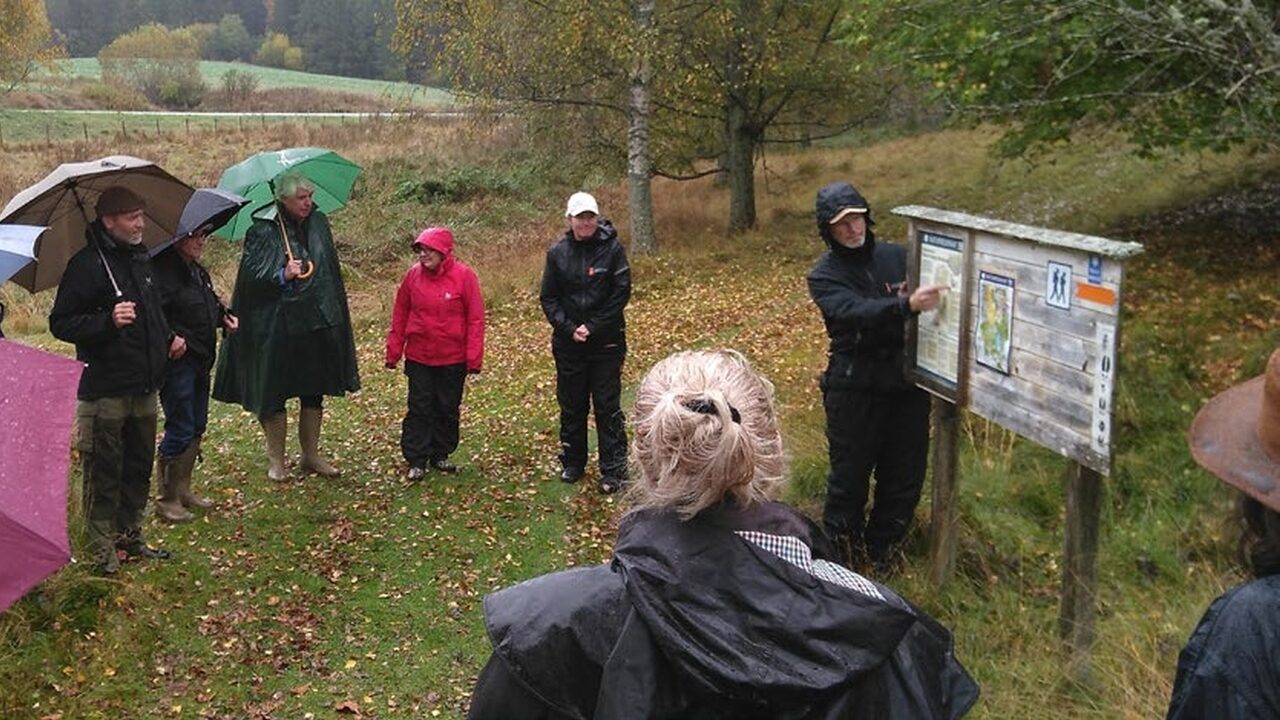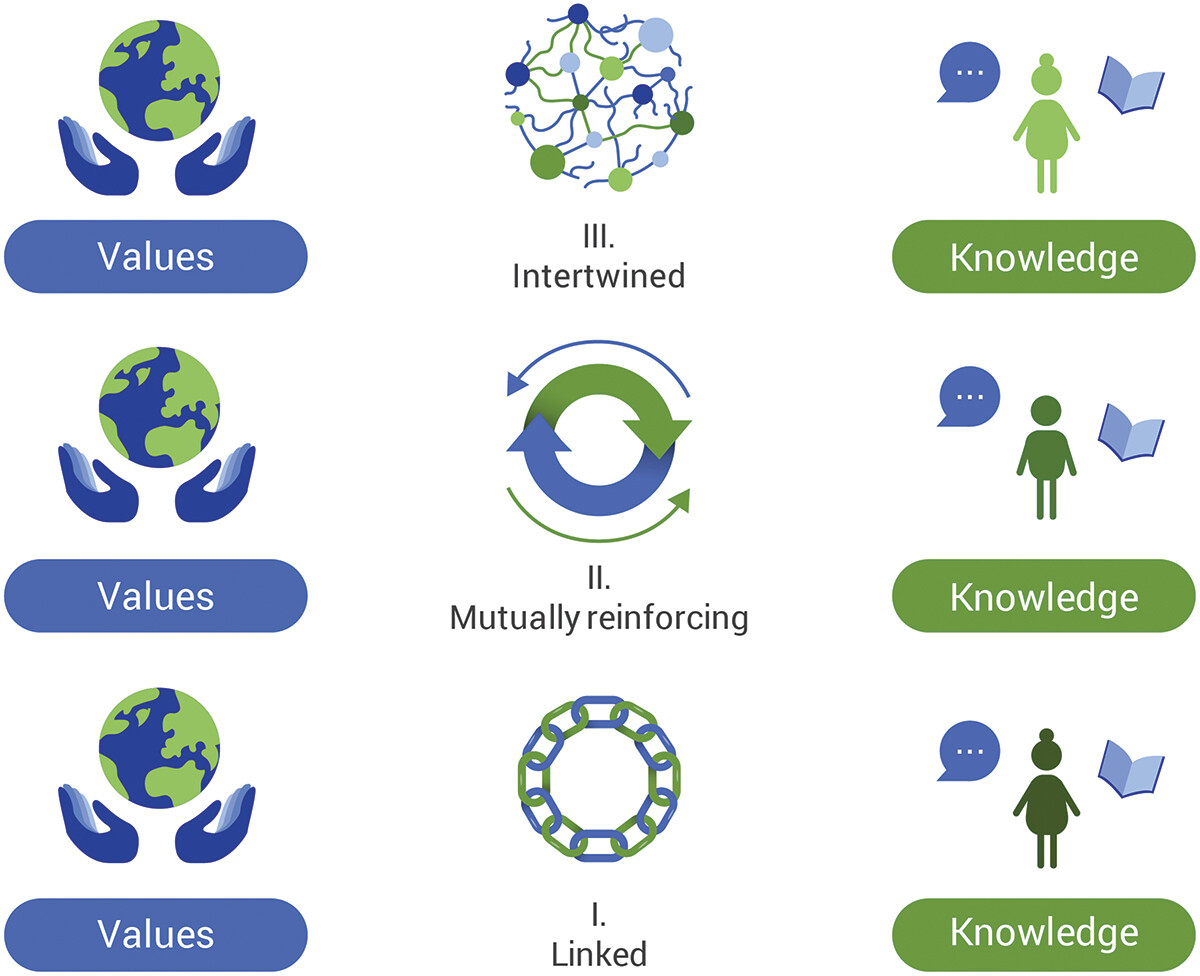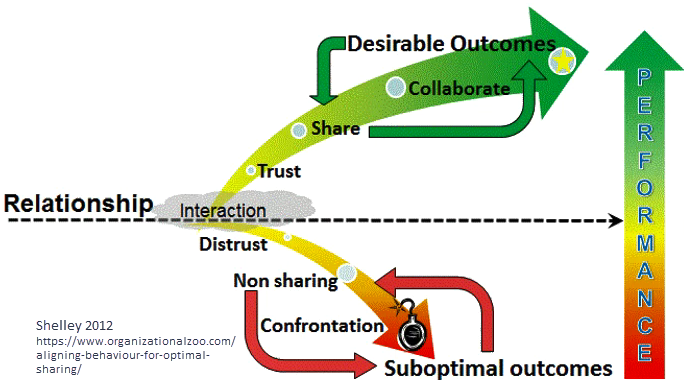
I know that feeling: The relevance of the relation between values and knowledge for collaborative approaches
As recently more and more knowledge systems and their embedded values gain recognition in sustainability sciences, their importance for achieving more equitable, inclusive decision-making and land management become clearer as well. Sustainability sciences that only focus on underlying values can exclude certain stakeholder groups if knowledge is restricted to forms only valid according to the dominant value system. Vice versa, knowledge-only approaches exclude inner dimensions important for achieving transformative change. But the relationship between knowledge and values is still ambiguous. In their new paper, Horcea-Milcu et al. (2022)1 use a visioning approach to shed a light on the cognitive and emotional processes that happen at the individual level regarding the relationship between values and knowledge.
The investigation was conducted in Östergötland, Sweden. The area is characterized by multifunctional landscape types: 250 protected areas create a mosaic landscape in combination with forests, arable land, urban areas or pastures. This creates diverging interests like recreational needs, economic productivity and conservation efforts with various values of nature. To create sustainable landscape strategies, conservation authorities strive to establish diverse collaborative processes to ensure the participation of all stakeholders. Against this backdrop, Horcea-Milcu et al. conducted 30 semi-structured exploratory interviews including pre-interview questionnaires with stakeholders previously involved in Östergötland’s landscape management. They examine three questions: Which values and forms of knowledge are considered when individuals reflect on their ideal vision for landscape management, how do different types of values and forms of knowledge relate when informing an ideal landscape management vision, and how collaborative pluralistic settings can take into account the relationship between values and knowledge.
Horcea-Milcu et al. define an ideal vision as a desirable future state with strong normative quality. In landscape management, visions are informed by different knowledge systems like scientific or local ecological knowledge as well as place-based contextual and transcendental core values. The authors use two value conceptualizations for their assessment: Core human values (concepts held by individuals that transcend specific situations or guide behaviours) and assigned values (worth ascribed to specific places, objects or states of the world, dividable into instrumental, intrinsic, and relational values).
Interviewees mention both core human values like freedom, social justice and fairness, as well as relational values like place-based contextual values or the relevance of social interactions and identity when determining values to consider for their ideal vision. Knowledge about nature in general, how species are interconnected and how humans are connected to nature are deemed necessary as well, therefore the participants aim more at the connectedness and interdependence in nature rather than specific knowledge about its elements.
Horcea-Milcu et al. classify relations between values and knowledge as either linked, mutually reinforcing or intertwined (Fig. 1). The linked modality proposes knowledge and values as separate constructs that can be linked but are not always connected. For example, participants recall situations with conflicting values and knowledge, where knowledge is observed to be outside the individual. Mutually reinforcing values and knowledge are perceived as dynamically coupled with sometimes synergistic characteristics. These interconnections are recognized as bidirectional relations with different starting points. Here, participants consider knowledge without values as lacking in motivation and depth, whereas becoming aware of underlying values might strengthen the motivation to act towards a desired vision. Intertwined values and knowledge mutually build on each other when individuals continuously work on reducing tensions between the two. Horcea-Milcu et al. define this as individual coherence building where a process of re-actualization and iterative learning is developed.
Lastly, collaborative knowledge co-production processes are defined as either an educational informative tool, a transformative tool with concrete outputs, or an inclusivity tool that promotes participation.

To implement these learnings into collaborative decision-making processes, Horcea-Milcu et al. recommend to alternate recognizing the interdependence and co-creation of values and knowledge with consensus building. Here, operationalizing reflexivity at an individual level might serve as a baseline for these processes. This can build socially inclusive spaces that limit marginal views. Using the three modalities from a values-knowledge perspective can help decision-makers design context-specific strategies that promote social engagement in landscape management, and ultimately just and equitable governance.
Check out the details of Horcea-Milcu et al.s (2022) paper.
Article source: I know that feeling: The relevance of the relation between values and knowledge for collaborative approaches by judithmeschmitz, republished by permission.
Header image source: Envision, Stockholm Resilience Centre.
Reference:
- Horcea-Milcu, A. I., Zaman, S., Filyushkina, A., López-Rodríguez, M. D., Cebrián-Piqueras, M. A., & Raymond, C. M. (2022). The relationship between values and knowledge in visioning for landscape management: relevance for a collaborative approach. Ecosystems and people, 18(1), 498-513. ↩






